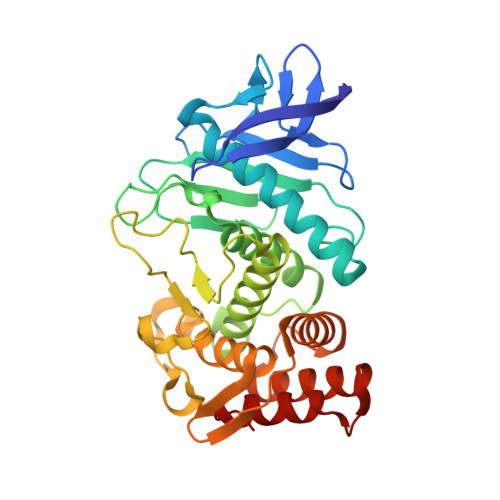Synthesis of Aspartame by Thermolysin: An X-ray Structural Study.
Birrane, G., Bhyravbhatla, B., Navia, M.A.(2014) ACS Med Chem Lett 5: 706-710
- PubMed: 24944748
- DOI: https://doi.org/10.1021/ml500101z
- Primary Citation of Related Structures:
3QGO, 3QH1, 3QH5 - PubMed Abstract:
Protease mediated peptide synthesis (PMPS) was first described in the 1930s but remains underexploited today. In most PMPS, the reaction equilibrium is shifted toward synthesis by the aqueous insolubility of product generated. Substrates and proteases are selected by trial and error, yields are modest, and reaction times are slow. Once implemented, however, PMPS reactions can be simple, environmentally benign, and readily scalable to a commercial level. We examined the PMPS of a precursor of the artificial sweetener aspartame, a multiton peptide synthesis catalyzed by the enzyme thermolysin. X-ray structures of thermolysin in complex with aspartame substrates separately, and after PMPS in a crystal, rationalize the reaction's substrate preferences and reveal an unexpected form of substrate inhibition that explains its sluggishness. Structure guided optimization of this and other PMPS reactions could expand the economic viability of commercial peptides beyond current high-potency, low-volume therapeutics, with substantial green chemistry advantages.
Organizational Affiliation:
Division of Experimental Medicine, Beth Israel Deaconess Medical Center , Boston, Massachusetts 02215, United States.




















